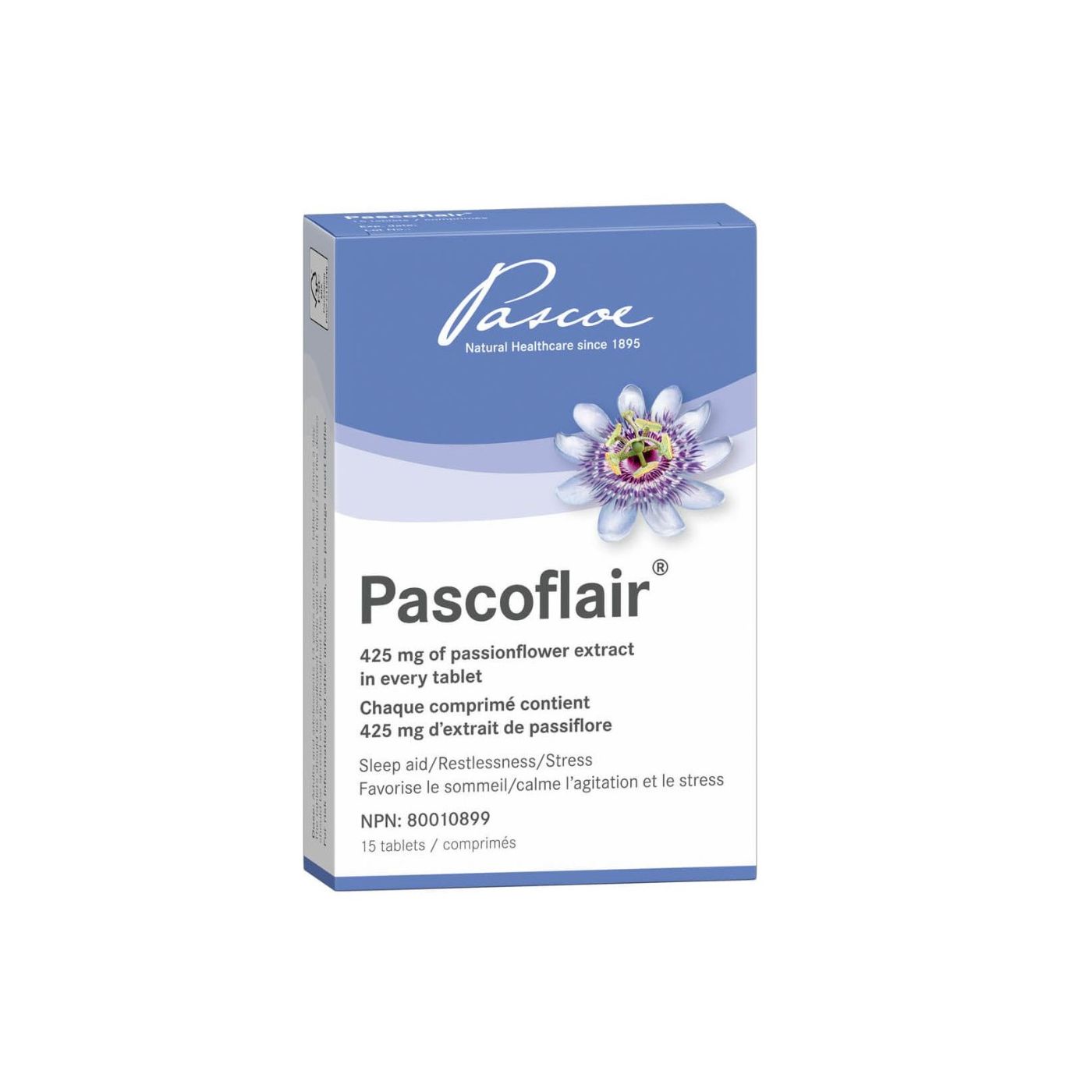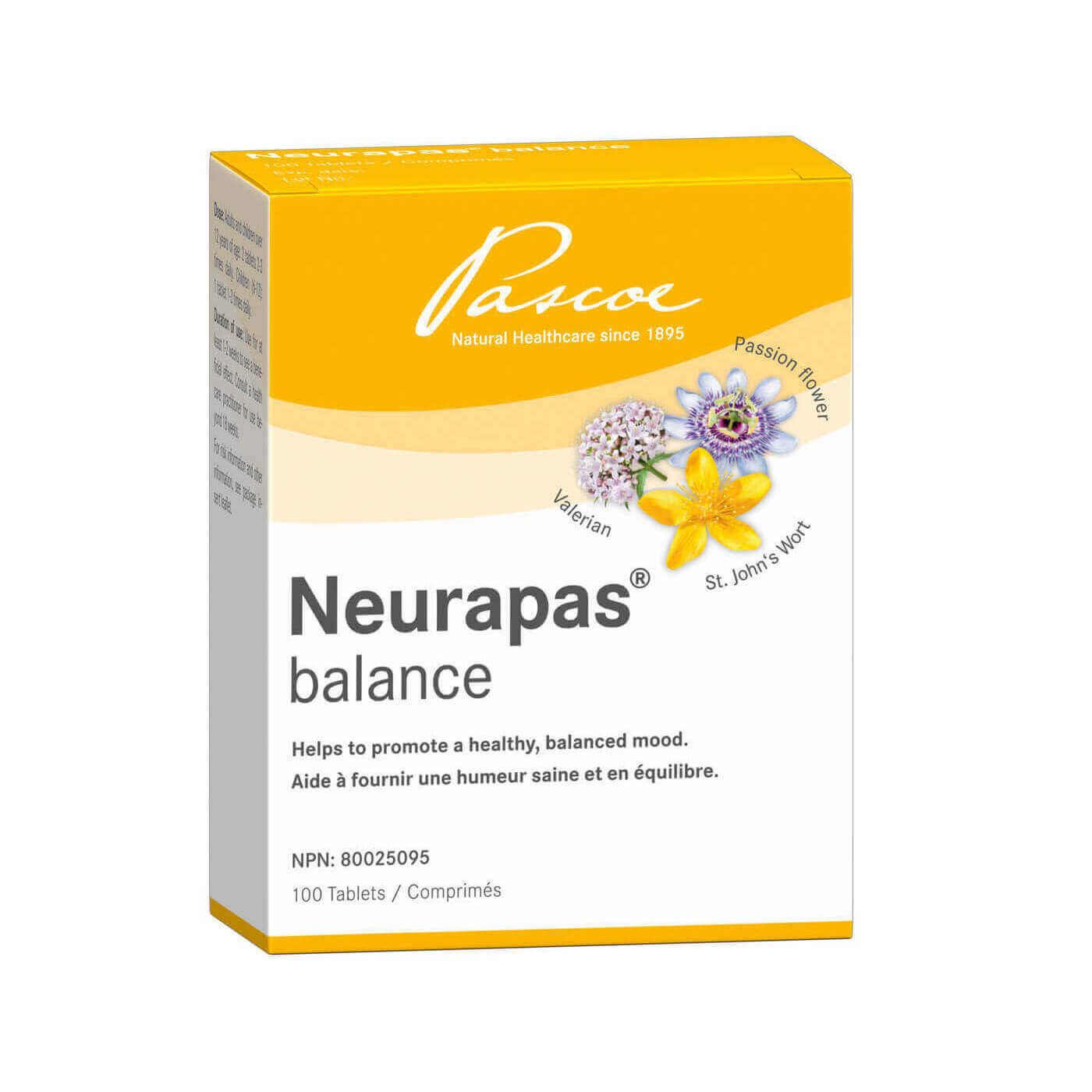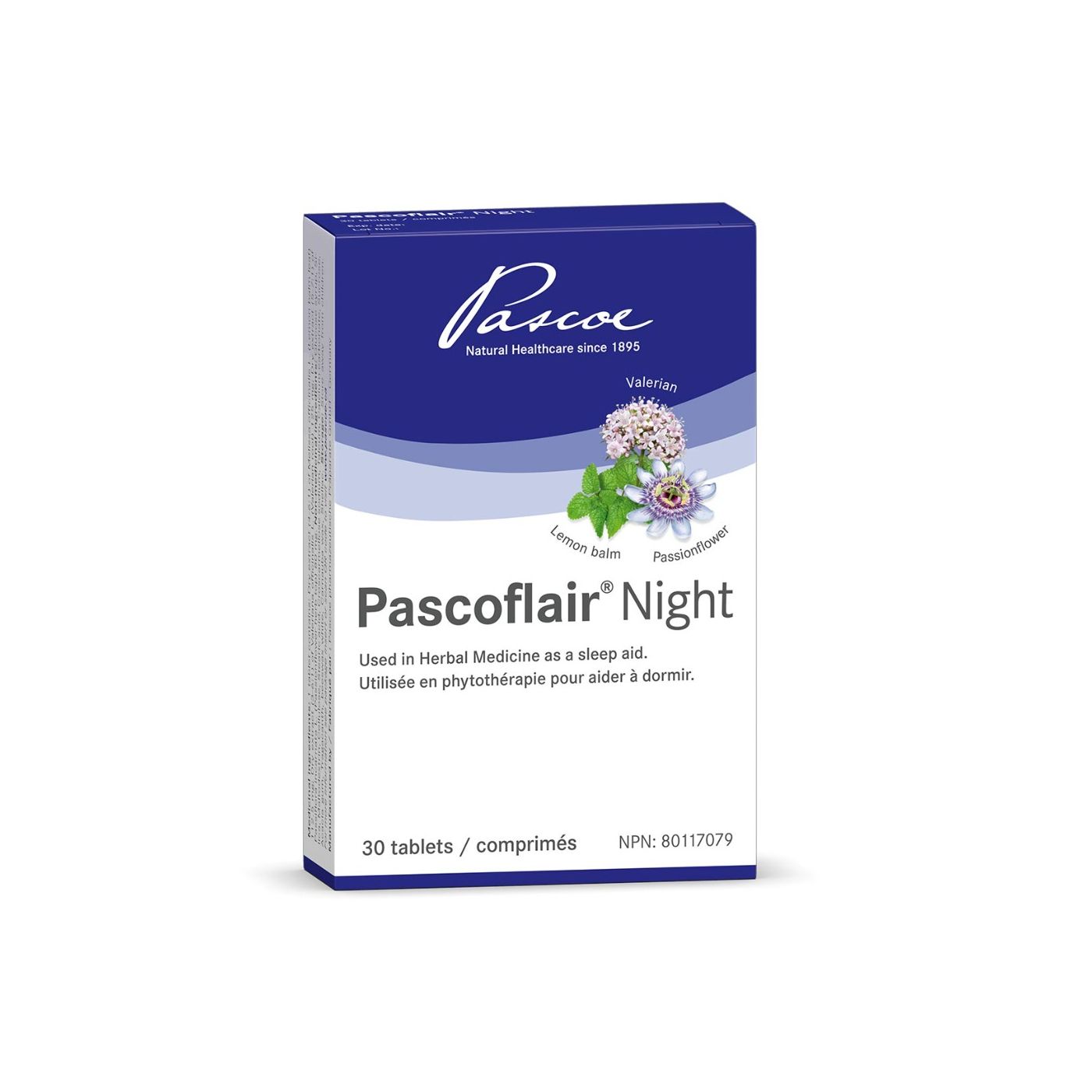Thyme


Passion Flower
Passiflora incarnata or passionflower is a climbing vine with beautiful flowers. The plant is native to Central and South America. It is also widely spread in the southeastern United States and was designated the state wildflower of Tennessee.
Passion flower herb has long been known and used for its sedative and calming effects. Native Americans used it mainly as sedative herbal tea. After Spanish explorers in South America learned of the passion flower benefits, they brought the plant to Europe.
Passionflower became cultivated in Europe and was widely used for treating anxiety and insomnia. By relaxing the central nervous system, it helps to quiet the mind.
Today, passion flower supplements are not only used for nervousness and sleep problems. The plant extracts are also used for pain, attention-deficit hyperactivity disorder (ADHD), and menopausal symptoms.
Applied to the skin, passionflower can help with burns, inflammation, and hemorrhoids. In skin care, the herb functions as natural skin conditioning and skin protecting ingredient.
The American Food and Drug Administration authority also allows the use of Passiflora incarnata as a natural flavoring.
Origin and types
Passiflora incarnata belongs to the passionflower family. There are over 500 known passionflower species in this large plant family. Since all these flowers grow on a vine they are sometimes referred to as passion vines.
Passiflora incarnata is the most studied species and mainly used in herbal medicine. The plant is also known as purple passionflower, maypop, or apricot vine.
Passiflora caerulea is the blue or blue crown passionflower. Even though it has some medicinal properties, the plant is mostly used as an attractive ornamental vine. The blue passionflower is native to South America while P. incarnata is also found in North America.
Passiflora edulis is the most commercially cultivated species. For its edible fruits it is commonly known as passion fruit or purple granadilla. There are two varieties, P. edulis with its dark purple passionfruit and P. edulis flavicarpa with its large yellow fruits. Flavicarpa means yellow fruit in Latin.
The above ground parts of Passiflora incarnata are used to make passionflower tea and dry extracts of the plant.
What does the plant look like?
The purple passionflower is a climber growing to a height of 6 meters. The vine has a finely hairy stem with three-lobed leaves. Single blossoms arise along the vine.
The flowers are bluish-white with a ring of purple curly fringe. Their five petals sometimes split when fully open. The fragrant flowers open and close each day.
Each flower produces a yellow apricot sized fruit. The fruit is an egg-shaped berry that is edible
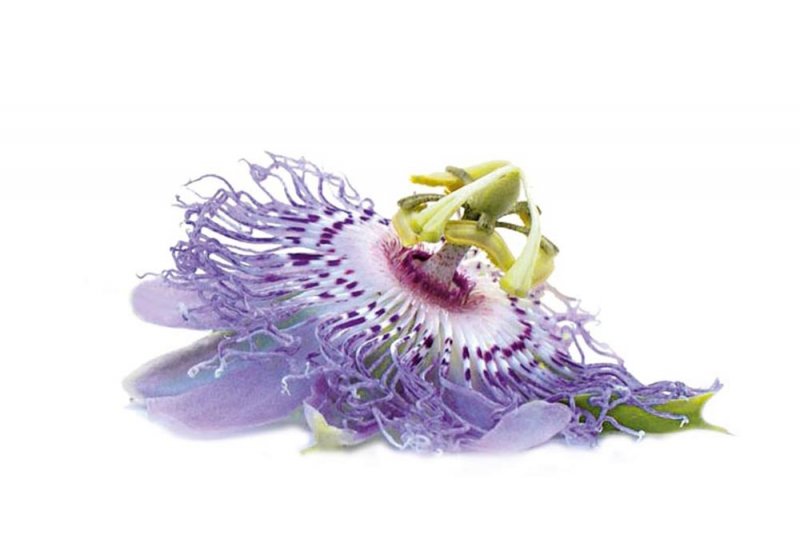

Where does the name come from?
Passiflora is derived from the Latin word ‘passio’, meaning passion and ‘flos’, meaning flower. Incarnata means flesh-colored or flesh-like in Latin.
Spanish explorers learned about passionflower from native Peruvians. They saw this unique flower as a symbol of the Passion of Jesus in Christian theology.
Passiflora incarnata as a medicinal plant
In herbal medicine it is very common to use passionflower in the treatment of anxiety, trouble with sleeping or for overall relaxation. Several clinical trials have shown that P. incarnata reduced anxiety and had calming effects.
A double-blind, randomized trial compared Passiflora incarnata extract with the pharmaceutical drug oxazepam in the treatment of generalized anxiety disorder (GAD). No significant difference was observed between the two test groups of this pilot study. P. incarnata extract seemed to be equally effective with a lower incidence of impairment of job performance compared to oxazepam.
Another small randomized trial showed that P. incarnata extract was effective during dental procedures. Administered as a premedication, it significantly reduced anxiety in patients undergoing dental treatments.
A different double-blind, placebo-controlled trial showed that P. incarnata extract also helped with anxiety in surgery patients. Taken as a premedication before surgery, it reduced anxiety in the patients without inducing sedation.
Other studies investigated the effectiveness of passion flower for sleep. The herb seems to have benefits especially for sleep quality and sleep time. Still, more and larger clinical studies with passionflower are needed.
Medicinal Properties of Passiflora incarnata
P. incarnata is a gentle medicinal herb that
- works as a relaxant by suppressing the nervous system
- has sedating effects
- helps to shut off racing thoughts
- has anti-inflammatory and antispasmodic properties
Health Canada approves passionflower as Herbal Medicine to help relieve restlessness and nervousness (calmative) and as a sleep aid.
How and what is it used for?
Traditionally, it is most common to use passionflower for anxiety and to promote sleep. Passiflora incarnata can also help with:
- insomnia or trouble with sleeping
- anxiety and stress
- restlessness and nervousness
- substance withdrawal
- stomach or menstrual cramps
- headache
- attention deficit hyperactivity disorder (ADHD)
Passionflower is available in different preparations such as tea, liquid extract, capsules, or tablets. In skincare, the calming herb helps to protect and condition the skin.
How does it work?
The herb’s active ingredients are most likely flavonoids. Data suggest that these substances act on the central nervous system. They bind to the GABA (gamma-aminobutyric acid) receptors that relax the body.
They do this by
- inhibiting GABA reuptake: this prevents the brain from absorbing GABA, so it increases the concentration of GABA in the brain. This means there is more of the calming neurotransmitter that helps us to slow down. It does not affect GABA release.
- binding to GABA-B receptors: these receptors in the brain act as modulators that help to decrease anxiety and addiction withdrawal.
- non-binding to GABA-A receptors: they do not bind to other receptors where drugs such as benzodiazepines and alcohol bind. Therefore, passion flower has no addiction potential.
These actions help the body and mind to slow down and decrease stress. Passion flower also aids in relief from racing thoughts that are preventing someone from sleep.
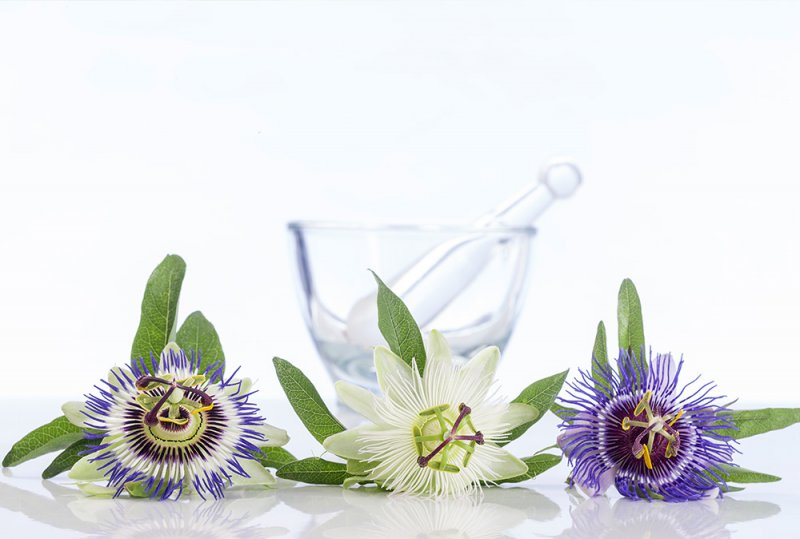

What makes Passionflower different?
In addition to its calming effects, passionflower also helps to relieve muscle spasms. This makes it a great herb for soothing both the physical body and the mind. It promotes recovery from the stress of the day as well as a good night's sleep.
Cautions and drug interactions
Passionflower is generally considered safe for most people. Still, it may cause some side effects. Known passion flower side effects are sleepiness or drowsiness. Therefore, it should not be taken with sedative medications.
Some people might experience allergic skin reactions or gastrointestinal issues. Passion flower may induce uterine contractions. It should not be used during pregnancy or lactation without medical advice.
Don’t forget to follow up any questions about passion flower dosage, persistent sleeplessness or other symptoms with your health care provider.
Pascoe products that contain Passiflora incarnata
Disclaimer
Pascoe Canada does not offer health or medical advice as we are not a healthcare practitioner. Please speak with your healthcare practitioner before beginning any program related to nutrition, diet, exercise, fitness, medical, and/or wellness. All content published by Pascoe Canada is developed through collaborating with licensed medical professionals and contributors. This includes text, graphics, images, and other material on the website, newsletter, and products (“Content”). This content is for informational purposes only and does not constitute medical advice. The content does not substitute professional medical advice, diagnosis, or treatment. Please always do your own research on whether this is for you along with your healthcare practitioner advice. Always consult your healthcare practitioner prior to use specific herbs because you might have underlined conditions needs professional care. The content is general in nature and are subject to change. It is not intended to cover all possible uses, directions, precautions, warnings, drug interactions, allergic reactions, or adverse effects.

